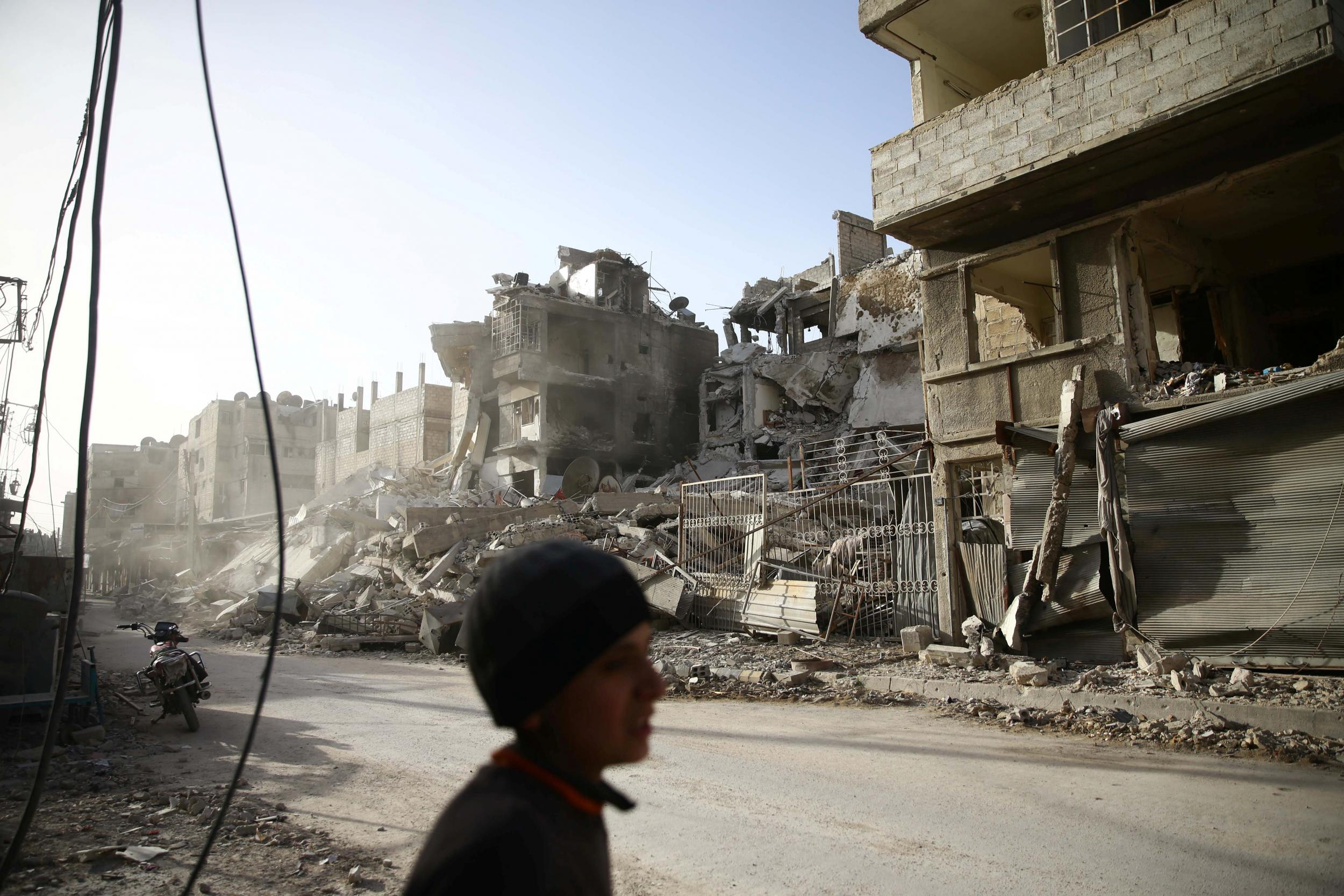Collapsed Eastern Ghouta ceasefires must not become a copycat of Aleppo, UN says
British officials ask United Nations Human Rights Council for urgent debate on the situation in besieged rebel district following failure of both the UN and Russian efforts

The United Nations has condemned the failure of both the Syrian government and rebel forces in Eastern Ghouta to observe several attempts at ceasefires, calling the besieged Damascus suburb “devoid of respect for international law”.
Thursday saw a third day of Russian-brokered pauses in fighting come to naught. Locals and war monitors reported continued air strikes and shelling on the area’s towns and farms throughout the day, as well as shelling of humanitarian corridors leading out of the area.
Both sides blamed the other for the violence. The Russian defence ministry said that rebel shelling of the corridors, supposed to allow medical evacuations out and aid deliveries in, had killed four civilians.

Dr Hamza Hassan, an ear, nose and throat specialist working in Eastern Ghouta, told The Independent that people were afraid of both the gunfire and shelling preventing people from leaving the district, and of what may await them on the other side.
“Why would you leave your home for something unknown, maybe a tent, on the other side where they are trying to kill you?” he said.
Syrian President Bashar al-Assad’s 12-day-old assault on one of the last rebel strongholds has now killed more than 600 people in one of the bloodiest operations in the seven-year-old war to date.
A rare unanimous UN Security Council resolution passed on Saturday demanding an immediate cessation in hostilities made no significant difference to the violence, nor did Syrian ally Russian President Vladimir Putin’s order on Monday for daily five-hour pauses.
“You are failing to help us help civilians in Syria,” UN humanitarian adviser Jan Egeland told diplomats from 23 states attending a weekly meeting in Geneva on Thursday, urging member states to help the UN expand the humanitarian windows in which waiting trucks of aid could be delivered.
“Eastern Ghouta is devoid of respect for international law.”
UN officials hope to create a two-way corridor to allow civilians to leave, and permit weekly deliveries of humanitarian aid.
Ghanem Tayara, chair of the Union of Medical Care and Relief Organisations working across Syria, said some 1,123 patients needed to be evacuated from Eastern Ghouta for emergency reasons. At least 24 medical facilities in the area have been damaged in air strikes – bombings the UN warned could constitute war crimes.
“The UN resolution has been ignored completely,” he said.
British officials have asked the UN Human Rights Council in New York for an urgently scheduled debate to address the failed efforts to establish a ceasefire.
The UN’s envoy to Syria, Staffan de Mistura, warned that the international community must actively seek a lasting solution.
“We cannot afford to have the luxury of giving up. So any type of feeling that the UN is frustrated: forget it.
“Otherwise, [the Eastern Ghouta assault] becomes a copycat of Aleppo,” he said.
The siege of Aleppo ended in December 2016 after a massive Russian-backed bombing campaign. Civilians and rebel fighters were bussed out of the city to the neighbouring opposition-held province of Idlib.
The government’s tactics echo several other urban battles in Syria’s complex conflict. Approximately 400,000 people have lived under siege in Eastern Ghouta since 2012, the UN says, and food and medical supplies are running low.
While Eastern Ghouta is technically covered by a 2017 de-escalation deal, Mr Assad says he is targeting al-Qaeda-linked factions in the area not covered by the agreement.
Syria’s war is entering its eighth year later this month. The fighting has killed 500,000 people and driven more than half the pre-war population of 22 million from their homes.
Join our commenting forum
Join thought-provoking conversations, follow other Independent readers and see their replies
Comments
Bookmark popover
Removed from bookmarks